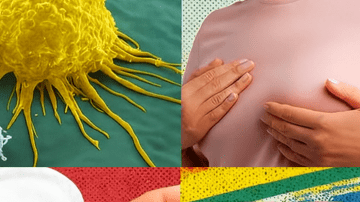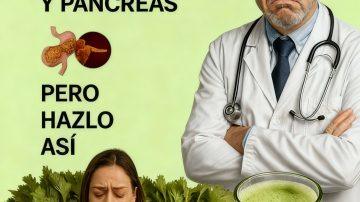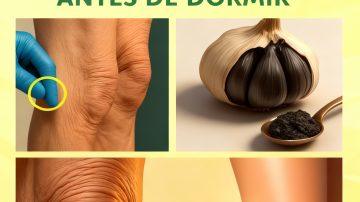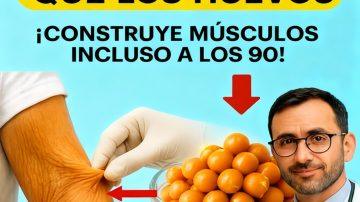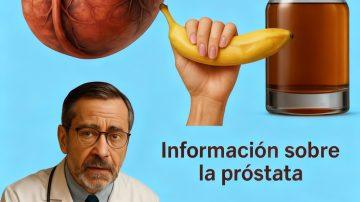The health of our kidneys often goes unnoticed until a symptom arises that demands our attention. One such sign that generates concern is foamy urine, a phenomenon many people have experienced but few truly understand. In a country where rates of diabetes, hypertension, and chronic kidney disease continue to rise, understanding what is happening in our bodies is fundamental to preventing complications.
This article seeks to explain, in a clear and educational manner, what foamy urine might signify, when it’s normal, when it’s not, and how incorporating healthy nutritional habits—including fruits like pineapple—can contribute to better kidney function. These are not miraculous cures, but education based on basic health principles designed to keep you informed and engaged.
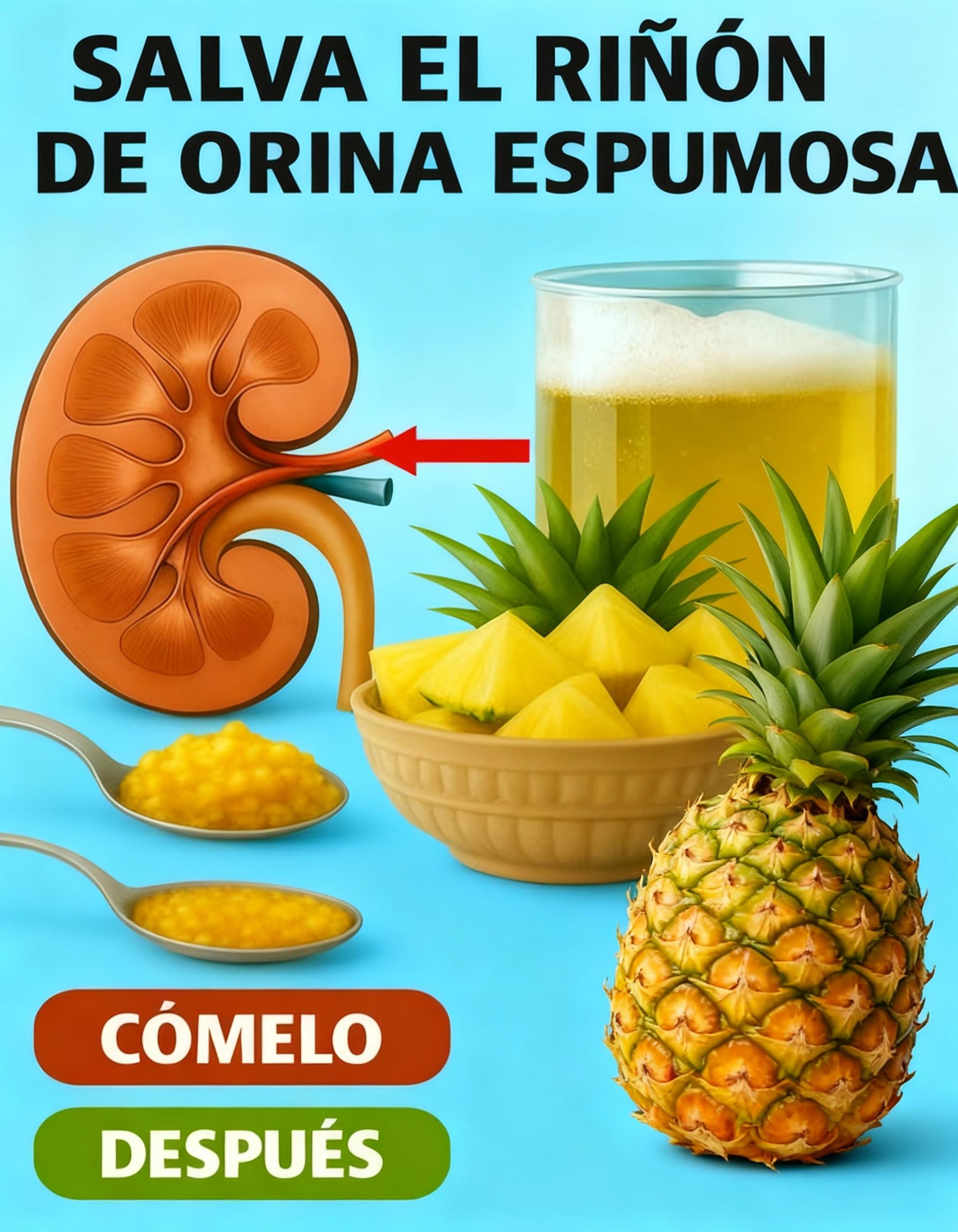
💧 Decoding Foamy Urine: When to Worry and When to Relax
The presence of foam in the urine can be due to several reasons. Sometimes it is completely harmless, but at other times it can be an indicator of an underlying kidney problem. The key is knowing the difference.
Common and Non-Dangerous Causes
- Urinary Stream Velocity: When urine exits with significant force, it can generate bubbles similar to foam in the toilet water. This is usually temporary and disappears quickly.
- Dehydration: When we don’t drink enough water, the urine becomes more concentrated and can form foam. Warm climates and low fluid intake often exacerbate this issue.
- Cleaning Product Residues: Sometimes the toilet bowl contains detergents or soaps that make the urine appear foamy, even though there is no health problem.
Causes That Do Require Attention
- Presence of Protein in the Urine (Proteinuria): This is the most worrisome reason. Proteinuria can indicate damage to the kidney’s filters (glomeruli). It is common in people with:
- Diabetes
- Hypertension (High Blood Pressure)
- Chronic Kidney Disease (CKD)
- Autoimmune Disorders
- Urinary Tract Infections (UTIs): In addition to foam, there may be pain, burning, bad odor, or an urgent need to urinate.
⚠️ Seek a healthcare professional if the foam persists for several days, is very abundant, or is accompanied by swelling in the feet, extreme fatigue, or very dark urine.
💖 Why Kidney Care is Non-Negotiable
The kidneys are small but essential organs. They filter over 150 liters of blood per day, eliminate waste, regulate fluids, and produce important hormones. When they begin to deteriorate, symptoms can take a long time to appear, which is why prevention is crucial.
Millions of people globally live with some degree of chronic kidney disease, and a large portion of new cases could be avoided with healthy habits. Your kidneys are your body’s silent heroes—give them the support they deserve.
🍏 Nutrition and Renal Health: What Truly Helps
Proper nutrition is a fundamental pillar for keeping the kidneys functioning correctly. A balanced diet helps reduce inflammation, control blood sugar, lower blood pressure, and prevent the accumulation of toxins.
One fruit renowned for its freshness and nutritional content is pineapple (piña).
The Pineapple: An Ally for the Renal System
While no single food can “cure” kidney problems, pineapple can be an excellent part of a kidney-healthy diet because:
- It contains a lot of water (about 85%), which aids in maintaining good hydration.
- It is rich in Vitamin C, an antioxidant that reduces inflammation.
- It provides Bromelain, an enzyme that promotes digestion and may help reduce fluid retention.
- It has low sodium content, which is ideal for people with hypertension or renal risk.
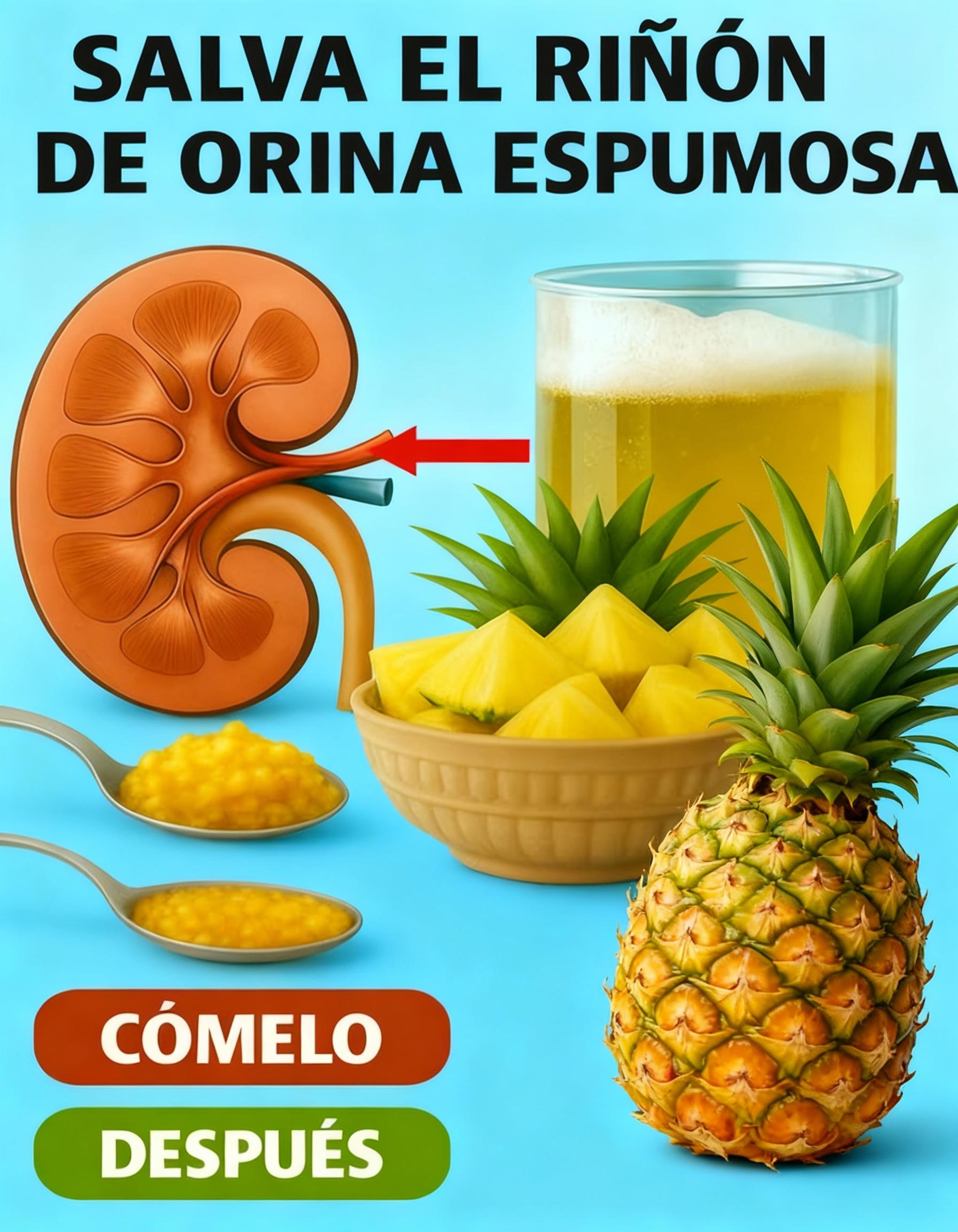
How Pineapple Indirectly Supports Kidney Function
- Hydration: A good daily amount of water keeps the body’s waste products diluted. Consuming pineapple provides both liquid and natural electrolytes.
- Weight Control: Pineapple is low in calories and helps prevent obesity, a major risk factor for kidney damage.
- Natural Anti-inflammatory: While it doesn’t replace medical treatments, its bromelain content can be useful as part of a balanced, low-inflammation diet.
✨ The Top 10 Superfoods to Combat Proteinuria and Support Kidneys
These superfoods are beneficial because they are typically low in sodium, low in phosphorus, high in antioxidants, and rich in fiber, all of which help manage the conditions that lead to kidney damage, such as high blood pressure and diabetes.
| # | 🥝 Superfood | 🔑 Key Benefit for Kidneys |
| 1 | Berries (Blueberries, Strawberries) | Powerful antioxidants (anthocyanins) protect kidney cells from oxidative stress. Low in potassium/phosphorus. |
| 2 | Cabbage (Repollo) | Low in potassium and inexpensive. High in Vitamin K and C, plus fiber for blood sugar control. |
| 3 | Fish Rich in Omega-3 (Salmon, Sardines) | The healthy fats fight inflammation, which is key in preventing kidney disease progression. |
| 4 | Red Bell Peppers (Pimientos Rojos) | High in Vitamin C and A. Contain lycopene and folate. Low in potassium compared to other vegetables. |
| 5 | Olive Oil | A great source of oleic acid, an anti-inflammatory fat that helps reduce the risk of cardiovascular issues often linked to CKD. |
| 6 | Garlic (Ajo) | Excellent substitute for salt in recipes, helping to reduce sodium intake. Contains compounds that support blood vessel health. |
| 7 | Egg Whites | A pure protein source with less phosphorus than yolks, making it suitable for people on a low-phosphorus renal diet. |
| 8 | Pineapple (Piña) | Excellent for hydration, low sodium, and contains Bromelain (as discussed above). |
| 9 | Cauliflower (Coliflor) | A ‘renal-friendly’ source of Vitamin C, K, and folate. Can be mashed or riced as a low-potassium alternative to potatoes. |
| 10 | Turmeric (Cúrcuma) | Contains Curcumin, a potent anti-inflammatory compound. Helps control blood sugar and pressure. Use moderately as a spice. |
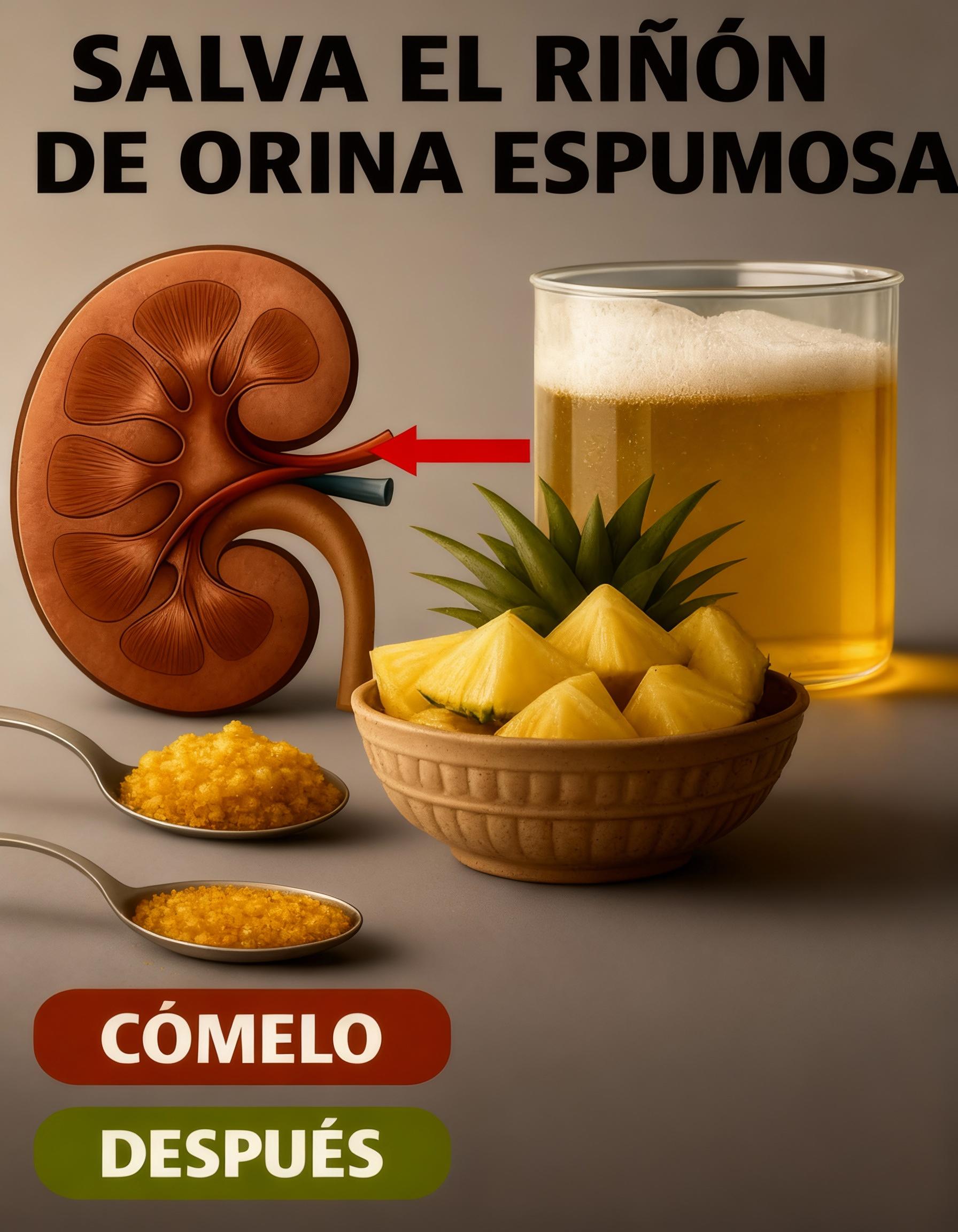
🚫 Foods to Limit for Optimal Renal Function
Yes, you should avoid certain foods, especially if there is already a risk of kidney damage. Without being alarmist, it is useful to know which foods can demand more work from the kidneys and accelerate proteinuria:
- Excess Salt/Sodium: Causes fluid retention and increases blood pressure.
- Heavily Processed Meats and Cold Cuts (Embutidos): High in sodium, phosphorus, and saturated fats.
- Sugary Drinks (Sodas, Juices): Lead to blood sugar spikes and contribute to obesity and diabetes.
- Fast Foods Rich in Trans Fats: Accelerate vascular damage, which directly affects the small blood vessels in the kidneys.
- Excessive Alcohol Consumption: Dehydrates the body and forces the kidneys to work harder to filter toxins.
Reducing these products also improves cardiovascular health, which is intimately linked to renal health.
🚰 The Importance of Water: The Simplest Habit
Drinking enough water is perhaps the most simple and effective measure to prevent kidney problems. The general recommendation for adults is between 1.5 and 2 liters of water per day, although this can vary depending on physical activity, climate, and health conditions.
It’s recommended to monitor signs of dehydration:
- Very dark urine
- Headache
- Dry mouth
- Fatigue
The ideal urine color should be a light yellow, similar to straw. This is a clear indicator that your kidneys are getting the fluid they need to function efficiently and flush out wastes.
📝 Foamy Urine: Your Practical Action Plan
If foamy urine appears, use this practical plan to guide your next steps:
- Observe if the foam disappears quickly: If it vanishes in seconds, it is likely normal (due to stream speed or cleaning products).
- Review your hydration: Increase your water intake for 24-48 hours and observe for changes. Dehydration is the most common benign cause.
- Evaluate your recent diet: Very high-protein meals (meat, eggs, supplements) can temporarily increase protein and concentration in the urine, causing foam.
- Consult if it persists for several days: A simple urine test (urinalysis) can detect proteinuria and other key indicators.
- Do not self-medicate: Kidney health is delicate; unsupervised medications, even common pain relievers, can worsen it.
✅ Essential Habits for Maintaining Healthy Kidneys
Protecting your kidneys is a long-term commitment that yields huge health benefits:
- Maintain a Healthy Weight: Obesity significantly strains kidney function.
- Control Your Glucose Levels: For diabetics, strict control prevents damage to the kidney filters.
- Check Your Blood Pressure: Hypertension is the leading cause of chronic kidney failure.
- Walk or Exercise Moderately Daily: Physical activity improves circulation to all organs, including the kidneys.
- Reduce Salt Before Eliminating It Completely: Gradual reduction is more sustainable.
- Avoid Smoking: Smoking is disastrous for the blood vessels that supply the kidneys.
- Consume Fruits like Pineapple as part of a balanced, whole-food diet.
🎯 Conclusion: Observe, Understand, and Act
Foamy urine can be harmless… or it can be an early sign of kidney damage. The key is to observe, understand, and act responsibly. Incorporating fresh foods, maintaining adequate hydration, and leading a healthy lifestyle are simple yet effective measures to protect your kidneys.
In a world where chronic diseases are on the rise, education and prevention are powerful tools. Listening to your body and attending regular medical check-ups can make a huge difference in your long-term well-being. By focusing on whole, unprocessed foods and managing your underlying health conditions (like diabetes and hypertension), you give your kidneys the best chance to keep filtering your blood for decades to come.


